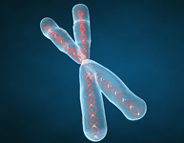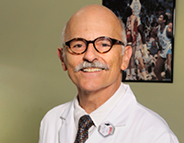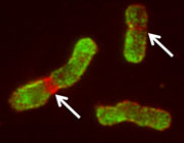 |
 |
|||||||
| November 16, 2011 | Research Extras Register for the 7th annual Predictive Health Symposium, scheduled for Friday, Dec. 2, to learn about "Health and the Microbiome." Scientific leaders in this emerging field, including the coordinator of the NIH Human Microbiome Project, will discuss the microbiome in cardiovascular disease, metabolic syndrome, Alzheimer's disease, and infectious diseases. Learn about Emory's new Office of Business Practice Improvement, and a project to improve research administration functions throughout Emory. Visit the For Researchers web page for opportunities to participate and provide feedback. Read a new issue of Emory Nursing magazine for information on faculty research, global partnerships, and notable accomplishments.
|
|||||||
|
David Sheps, MD |
||||||||
Sound Science: Is Ischemia in the Genes? |
||||||||
| Depression in Young People Increases Risk of Heart Disease Mortality Depression, or a history of attempted suicide in those younger than 40 (particularly women) greatly increases risk of death from heart disease, researchers have found. The risk appears to be greater than that of traditional risk factors such as smoking, hypertension, obesity and diabetes. Read more... |
||||||||
 The X chromosome |
||||||||
| Technology Targets Genetic Disorders Linked to X Chromosome Geneticists have developed a technique that can easily amplify all the genes on the X chromosome, allowing them to quickly sequence and identify genetic variations. Because the X chromosome is a hotspot for genes related to autism and intellectual disability, the technology could speed new discoveries and better diagnostic methods. Read more... |
||||||||
| Newly Discovered DNA Letter Affects Brain Development and Disorders Researchers first discovered an extra letter or "sixth nucleotide" in 2009 that was abundant in DNA from stem cells and brain cells. 5-hmC is a modification of cytosine, one of the four bases or "letters" making up DNA. Now scientists are learning how 5-hmC works to activate genes within the brain and how it changes in neurological disorders and during human development. Read more... |
||||||||
|
|
||||||||
| Can Mindfulness Help Cancer Patients Cope? Cancer patients often endure pain, fatigue, and uncomfortable medical treatments while living with an overwhelming sense of uncertainty and fear. Nursing researchers have found that mindfulness meditation can positively affect the well-being of cancer patients by improving heart and respiratory rates, symptoms such as pain and anxiety, and curbing panic during the ups and downs of treatment. Read more... |
||||||||
 |
 |
|||||||



